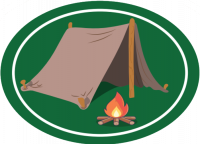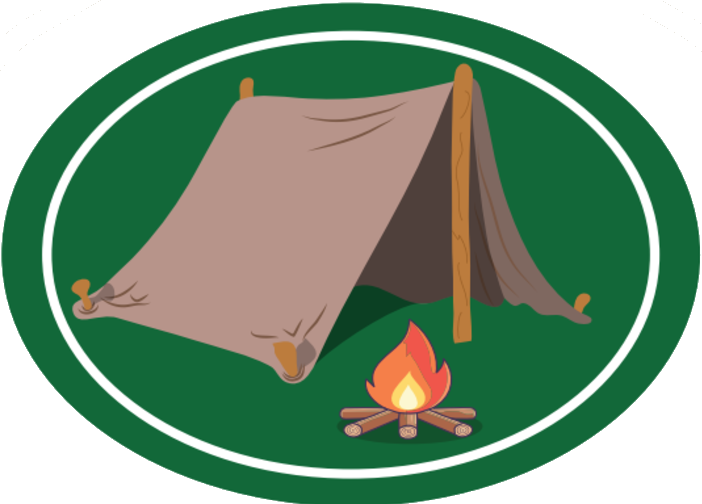AY Honor Tarp Camping Requirements
1. Explain what tarp camping is and how it differs from tent camping.
- a. List three advantages.
- b. List two challenges.
- c. Identify three types of tarps, two common sizes; and two care practices.
2. Complete the following:
- a. Find and discuss two Bible verses about God’s shelter or protection.
- b. When you set up a tarp with only a thin sheet between you and a storm, how does this relate to trusting God’s promises in times of uncertainty?
- c. When have you felt vulnerable or exposed, like being without a tent in a storm?
- d. How does God “cover” us in life, even when we have very little?
- e. Read Psalm 61:4 and explain what “shelter of your wings” means to you.
- f. What’s the difference between relying on God and relying on comfort?
3. Discuss four safety considerations when tarp camping. Demonstrate one safety practice.
4. Learn and demonstrate seven key knots useful for tarp/hammock camping. Explain when you’d use each.
5. Learn and set up three configurations using trees, poles, or stakes:
- A-frame – Simple, best for rain and privacy.
- Lean-to – Fast sun/wind block.
- Diamond – Minimalist, ideal over hammock or in tight space.
Explain when each is ideal and any drawbacks.
6. Learn three advanced setups. Set up at least one and explain when it’s useful:
- C-fly – Sloped walls for rain/snow.
- Holden Tent – Enclosed, but open front for ventilation.
- Adirondack Windbreak – Great for fire-facing camp setup.
Use real or improvised materials — branches, hiking poles, etc.
7. Learn to hang a hammock safely. Then pitch a tarp over the hammock (diamond or rectangle recommended). Explain how this setup improves comfort and weather protection.
8. Pack a basic tarp camping kit for a hiking trip. Include:
- Tarp (3x3 or 4x4m).
- Paracord or lines (at least 10–15m total).
- Stakes (or natural pegs).
- Pole(s), hiking sticks, or trees.
- Optional: hammock, bug net, groundsheet.
Set up your shelter in real or simulated conditions and spend at least 1 hour inside. Afterwards, evaluate stability, comfort, ventilation, and weatherproofing.
9. During a club trip or simulation, teach a younger Pathfinder how to set up a basic A-frame shelter.
- Guide them step-by-step.
- Encourage experimentation.
- Check tension and staking.
- Share one personal tip or mistake you’ve learned from (e.g., stake direction matters, ridgeline sag, wet ground issues).



